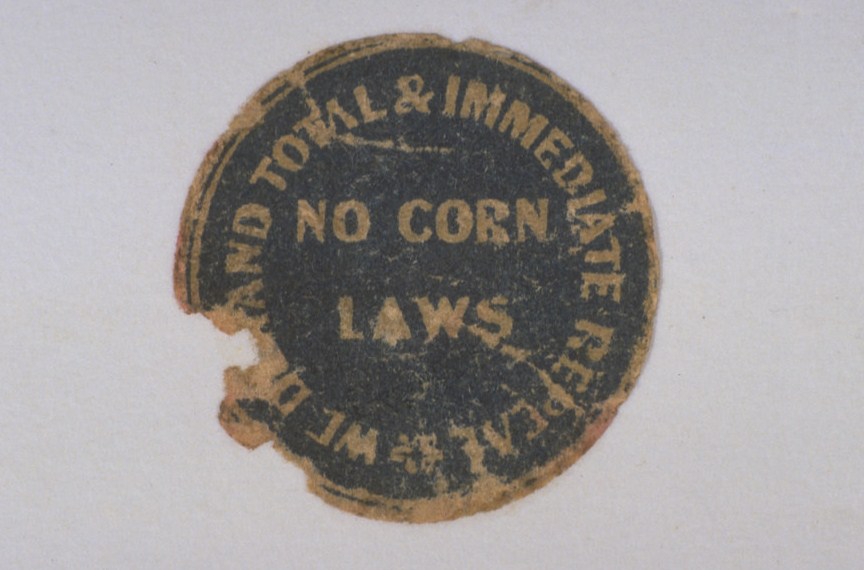29 March 2018
The Flag of Free Trade
The Brexit debate.
By John Watson
 The odd thing about Brexit is that it is multi-focussed. At first it was about money, the money it would free up for the NHS balanced against an equally spurious instant economic doom. Then it was about immigration, the waste of resources on an incoming horde being pitched against the need for more workers at a time of relatively full employment. There are issues of governance too. Roger Scruton’s latest book emphasises the contrast between the imposition of principle-based authority by the European bureaucrats and the muddled fudge and smudge of British politics, where the powerful are accountable to the governed. But when history comes to be written, writers will see something else, the place of Brexit in the struggle for free trade – an old argument which is, yet again, being played out in the international arena.
The odd thing about Brexit is that it is multi-focussed. At first it was about money, the money it would free up for the NHS balanced against an equally spurious instant economic doom. Then it was about immigration, the waste of resources on an incoming horde being pitched against the need for more workers at a time of relatively full employment. There are issues of governance too. Roger Scruton’s latest book emphasises the contrast between the imposition of principle-based authority by the European bureaucrats and the muddled fudge and smudge of British politics, where the powerful are accountable to the governed. But when history comes to be written, writers will see something else, the place of Brexit in the struggle for free trade – an old argument which is, yet again, being played out in the international arena.
If you watched the last episode of Victoria you will have seen a dramatized account of Peel’s fight to repeal the Corn Laws; something which he achieved with opposition support against the votes of his own party. The Corn Laws were a system of tariffs designed to keep the price of corn high by making it uncompetitive to import corn from abroad. The Tories saw them as necessary to protect the landowners against the disastrous fall in their income which would occur if the market became flooded with cheap European grain, then available as a result of the end of the Napoleonic wars. The mercantilist Whigs saw an unnecessarily high price of food impoverishing their workers and impeding industrial progress. The Irish were starved by high prices. Peel’s success in repealing the Corn Laws, which he achieved with the assistance of Wellington in the House of Lords, used up so much of his political capital that it destroyed him. Still, their repeal and the abolition of the tariffs they imposed is seen as a turning point in the Victorian march to greater and wider prosperity. I don’t know what happened to the landowners’ profits. Presumably they were indeed reduced.
Listen now to Rees Mogg, the leader of the arch-Brexiteers. Listen to how he describes the EU as a ramp that strikes at the poor. The poor of Europe see prices pushed up by the tariffs designed to protect European jobs, producers and manufacturers. Third world countries are prevented from selling to the EU so their farmers starve. Do you hear echoes of Peel in that analysis? Now Rees Mogg is a back bencher and much of what he says is impractical but there is surely a kernel of truth here. The EU as an institution pulls up the drawbridge in defence of European jobs. What would happen if it let it down?
Well, the Commission would say that it would destroy European jobs and perhaps that is right. “Let the outsiders onto the raft and it will surely sink” is a sentiment found as often in politics as in maritime history. Perhaps that is so but then again perhaps not. Bureaucrats tend not to be risk takers and their thinking is often distorted by a reluctance to abandon restrictions and controls. Who remembers the exchange control system under which sterling could only be exported with Treasury consent? It was an important part of the Bank’s defence of sterling post-war and a very considerable obstacle to international trade. In fact it was so important that a special department at the Bank of England existed to administer it, a thin red line of experts standing with pens at the ready as a final defence against the deluge. Heroic, staunch, British, the sort of men you would want your daughter to marry. As long as they remained true we could sleep at night.
And then what happened? In 1979 the barbarians took the gate. A woman was elected Prime Minister and one sunny day, not having much else to do, she abolished the whole structure and sent home those very guardians on whom the nation relied. We rushed to our cellars and waited for the collapse of sterling which must inevitably follow such an irresponsible move. We are waiting still.
There is no way that the EU will abolish tariffs or the subsidies it pays to farmers. There are too many sectional interests involved and its structures are too inflexible. Elsewhere in the world tariffs are going up rather than down as President Trump begins to embrace trade war as a way of giving his country the thrill of conflict without the body bags. So if it is true that free trade creates prosperity, who will fly its flag? Is this the role of the UK after Brexit? Is it this that we will be remembered as, a trading nation which forswore artificial protections and took its chance in world markets? Will it be a success? Who knows? But at least it is a brave approach.


